Why I love incidental dialogue
We will all speak more quietly around Ben from now on.
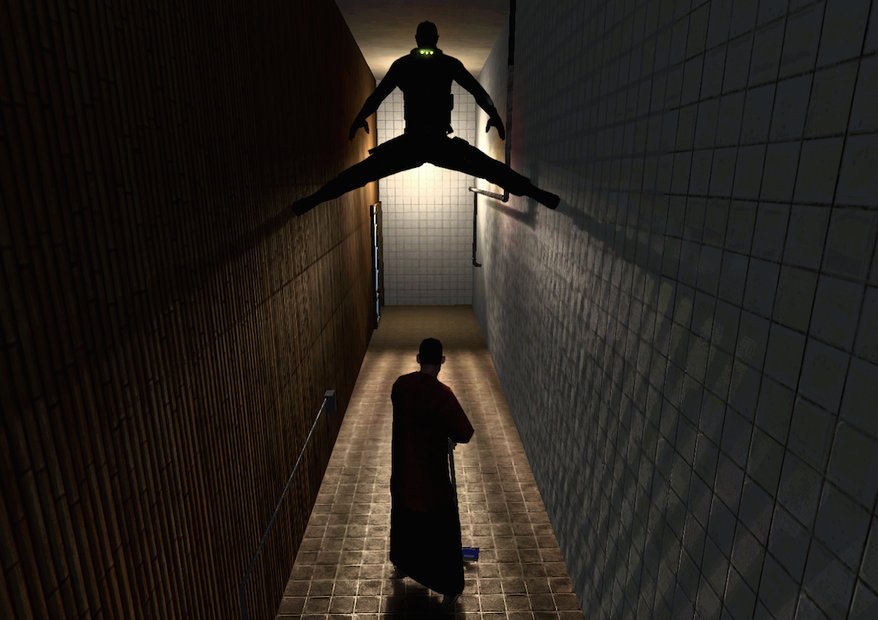
Typical me. I’ll skip a crucial cutscene or zone out as an important NPC details my primary mission, only to spend hours seeking out incidental dialogue. The term refers to optional lines you can overhear or trigger that enrich the world or add colour to characters—secondary stuff. But it can provide a lot of value in our favourite games. Infiltrating a Japanese tea house in Splinter Cell: Chaos Theory, for example, rubber-suited American super spy Sam Fisher locks a random guard in an iron chokehold and prompts the following dispensable exchange.
Guard: “Agh! I knew it! I knew there were ninjas here!”
Fisher: “What?”
Guard: “Yeah, you must be a ninja. How else could you sneak up and grab me like that?”
Fisher: “Listen, I don't know what…”
Guard: “Wow, I can't believe it. A real live ninja. ”
Fisher: “Listen, I’m going to kill you if…”
The biggest gaming news, reviews and hardware deals
Keep up to date with the most important stories and the best deals, as picked by the PC Gamer team.
Guard: “Wow, killed by a ninja... cool!”
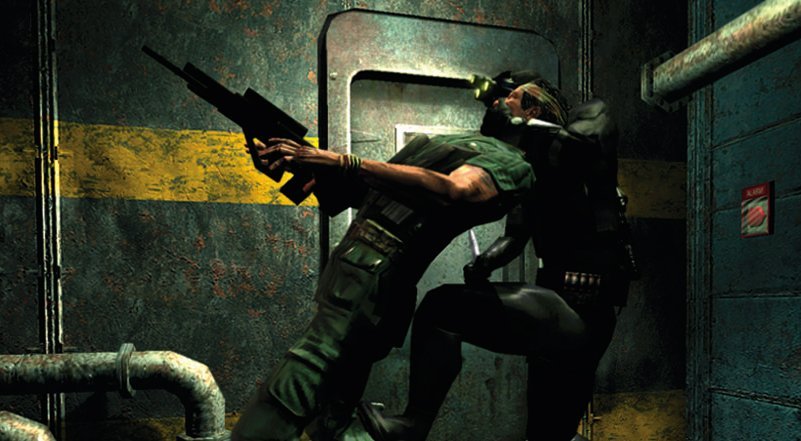
I’m rewarded by going out of my way. Later Fisher crouches in a corner and eavesdrops on two bickering mercenaries.
Mercenary 1: “Find any bugs?”
Mercenary 2: “Yeah! They're everywhere. Can't get rid them. It's like a damn insectarium here.”
Mercenary 1: “I mean microphones, stupid.”
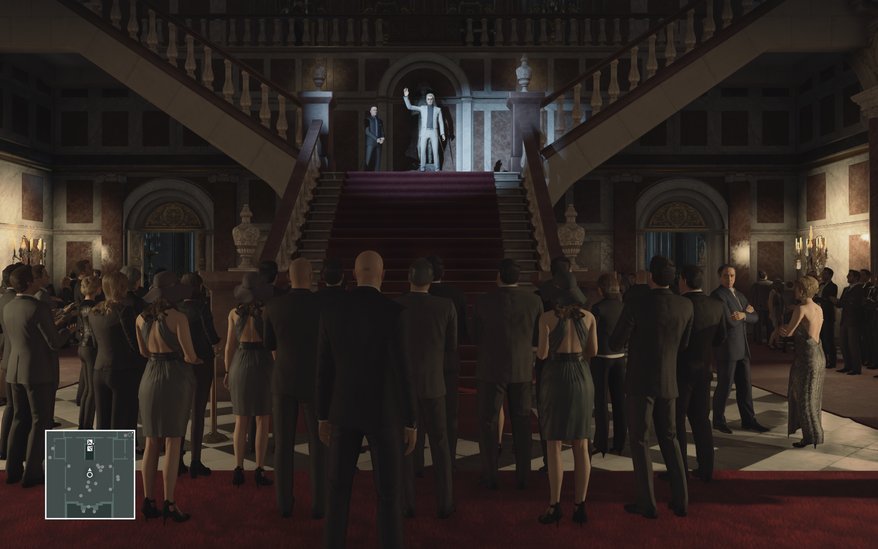
These particular exchanges use comedy to cut through the heavy atmosphere and ease the pressure, and I love them. In terms of believability, however, I’m not sure I quite buy poetic patrolmen who walk around embassies in the dark going, “Nothing here but ghosts and shadows.” Hitman, conversely, folds authenticity into its non-essential gags. The hundreds of low-priority lines in its first episode aren’t just sonic filler but threads to pull on and pursue to their natural conclusion. After collapsing a lighting rig in the Parisian fashion venue, for instance, you can head to a fountain in the grounds and find a man chatting on his phone:
“Hey honey, yeah I’m gonna be late. Uh, I’m stuck right they just totally locked this down. Uh, I have no idea when we’re gonna leave...Honey, no, I - No I’m not making this up. Look it up on the news...No! I haven’t been drinking. Why do you always go to that? It’s always the drinking with you. I have a real excuse now and...no it doesn’t mean all the others were fake excuses.”
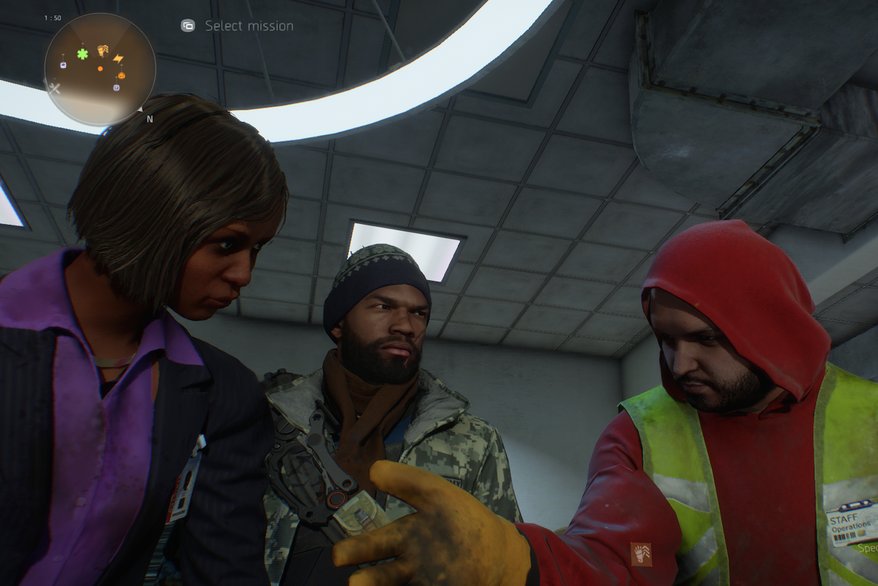
Hitman does something Chaos Theory doesn’t: react to your choices. If you didn’t crush a bunch of people with scaffolding and cause mass panic you’d never hear the ensuing relationship crisis. Incidental dialogue in The Division also changes in line with your actions. Take the group raising a glass in the Base of Operations. When I first arrived this former post office was a ghost town (or ‘ghost office’), but after upgrading its medical wing with a nice new clinic, everyone has a lot to say. I spot three doctors sharing a toast.
“OK OK, I wanna raise a glass right here. You know I’m not the sentimental type. I don’t cry at long distance phone commercials like some people round here. But the last couple of weeks working with you people has really cracked the chains around my hard little heart. To see you all working so hard to bring the city back to life. Well, it could make a grown man cry. This one. Oh God dammit. Here’s to you.”
I’m not just crossing off a to-do list visualised as one of those floating holograms Ubisoft loves, but sending reverberations through the community. Completing each mission is an XP boost and a few new pieces of gear for me, and a life-changing event for them.
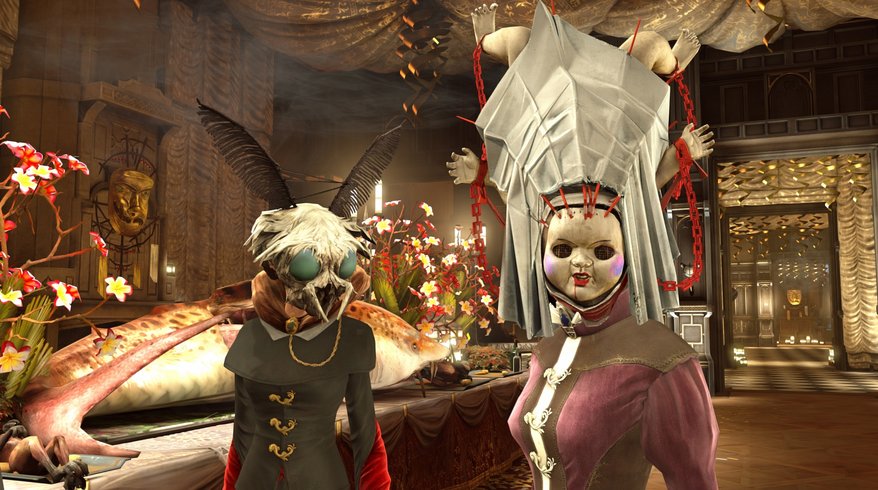
Then there are audio logs. This form of incidental dialogue has reached peak saturation in recent years because it’s an easy way for developers to tell ancillary stories without interrupting the player. But I’m bored of stumbling across a recorded message where a scientist tells you exactly where he stashed the power-up. Dishonored mixes methods with The Heart, an equippable item you point at people and objects in the world to learn about them.
For a Courtesan it might say: “On the first day of the Month of Rain, she means to throw herself from the roof.” For the Hound Pits Pub: “The ale here is sweetened with honey to hide the taste of river brine.” For a City guard: “He taught himself how to read,” or “He stinks of river mud and beer,” or “When not at his post, he searches for his sister, missing a week now.” It benefits for its brevity, a sentence or two of enigmatic description that has the capacity to completely alter how you view someone or something. Where Dishonored iterates, South Park: The Stick of Truth satirises the idea of them. In one section set inside a crashed alien craft you find a conveniently placed recorded messages that plays:
“I’m so scared and alone, I must find a way off this ship. Oh God, they’re coming! Why am I standing here making an audio log? I don’t have time for this!”
And incidental dialogue isn’t always incidental. At the very start of Batman: Arkham Knight’s Catwoman-starring downloadable episode, a trio of Riddler’s guards block the hallway.
“Bat put half the city in jail. Penguin’s boys ain’t getting paid. Two-Face’s boys spent the night robbing banks and they ain’t getting paid. But Riddler’s Boys? We are getting paid.” “You’re damn right we are,” says another. “God bless that ‘Nigma and his ‘electronic account system.’ Makes me feel bad for all the times I cornered nerds in high school and made ‘em eat their glasses.”
Developer Rocksteady deliberately position them along your obvious route to reduce the chance of missing this piece of table-laying context, but crucially, you don’t have to pay attention. It’s an extraneous piece of tangential background noise that you can tune into, and in the process, it transforms into something interesting, or funny, or dark, that you otherwise wouldn’t have experienced. That’s what incidental dialogue is—the choice to listen or not. And it can take many forms: sheepish reaction from a guard you’re interrogating, man whose phone conversation you’re nosing in on, or mysterious voice emanating from a human organ.
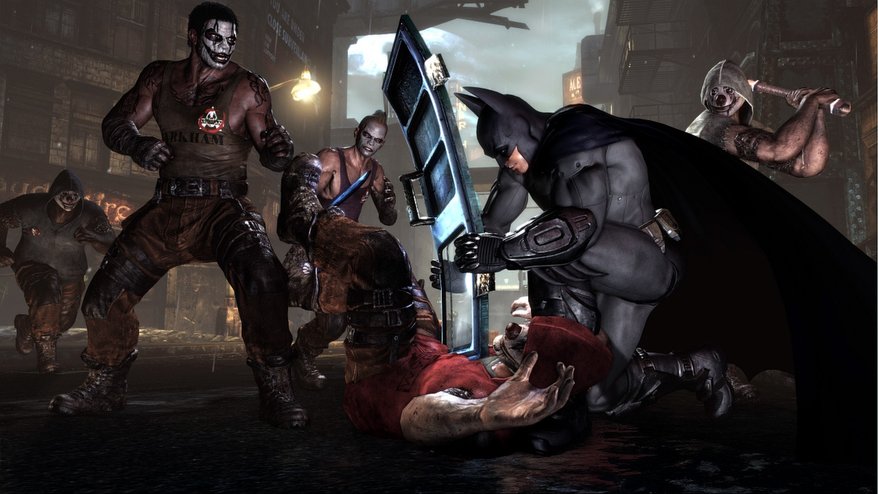
One of my all-time favourite pieces of non-critical dialogue is a self-reflective gossip from Batman: Arkham City in which two thugs, clearly referencing developers Rocksteady, share a meta wink.
Two-Face Thug 1: “So what now?”
Two-Face Thug 2: “I say we wait here, find out what's happening with Arkham City, then we decide.”
Two-Face Thug 1: “You think? What the hell can they do next? Arkham County? Arkham Country? Big-ass Arkham World?”
Two-Face Thug 2: “Ha, like that'll ever happen.”
Two-Face Thug 1: “I dunno, man, these people are crazy, aren't they?”
Two-Face Thug 2: “Yes they are.”

